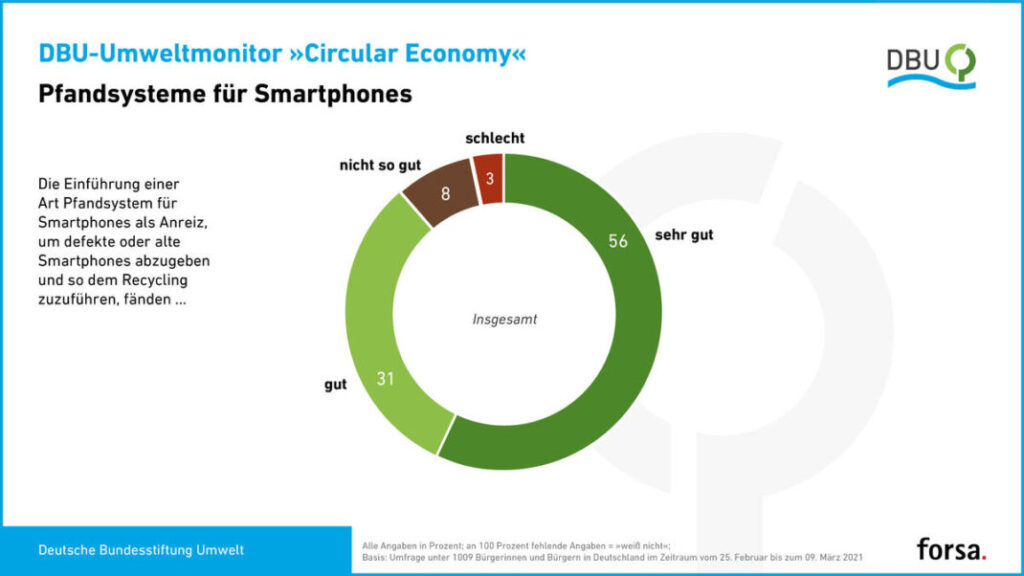Could there soon be a deposit on cell phones? According to a recent poll, the majority of Germans would support this. But why do you think a deposit system is appropriate in this area? The reasoning leaves little room for counter-arguments.

The deposit system is well known in this country. Bottle and can deposit definitely fulfills its purpose and the concept could also be used for smartphones – at least if the German Federal Environment Foundation (DBU) has its way. According to DBU General Secretary Alexander Bonde, electronic waste is becoming a massive problem in Germany and around the world. And the citizens also seem to be aware of this.
In a survey commissioned by the German Federal Environment Foundation – carried out by the opinion research institute Forsa between February 25 and March 9, 2021 – 87 percent of the 1,009 respondents thought a deposit system for cell phones would be sensible. Only 11 percent were critical of the idea. But what is behind the overwhelming popularity?
CELL PHONES: TOO MUCH WASTE
Although the result of the survey was quite clear, only a few stick to their own recommendations or wishes. Instead, countless Germans simply hoard old cell phones in their homes or even dispose of them in household waste. According to a survey by the digital association Bitkom57 percent of those surveyed own at least three old cell phones. Another 24 percent have two old cell phones, while 2 percent can “only” call one old smartphone their own. Around 80 percent of the components of a cell phone should be able to be recycled. These include valuable raw materials such as copper, cobalt, nickel, silver and gold. And, according to Bonde, such a resource cycle economy could save not only precious resources, but also the greenhouse gas carbon dioxide.

IS REPAIR A BAD APPROACH?
Damaged electrical devices are usually replaced. The respondents justified this behavior with the fact that repairs are expensive while replacement purchases are comparatively cheap (91 percent). As a result, repairs would simply not be worthwhile. In addition, 84 percent of those surveyed believe that manufacturers intentionally design their devices so that they hardly last longer than the statutory warranty period .
With cell phones, in addition to the hardware, the software components must also remain “functional” or up to date. This applies in particular to the so-called security updates, which guarantee the protection of a smartphone against digital attacks. Although some manufacturers, such as Samsung, have recently increased the update period, many cell phones are still provided with security patches for a maximum of two years. And as soon as these are no longer distributed, security-conscious users inevitably have to pick up a new cell phone.
In this context, the grand coalition recently agreed on a legislative package that includes mandatory updates. The formulations it contains are, however, rather vague and do not include a specific minimum update period or update frequency. As a result, the missing security updates are likely to be an important reason for replacing your own smartphone with a newer model in the foreseeable future. We’ll tell you how you can properly dispose of your old cell phone without a mandatory deposit system and thus make a contribution to the environment and a circular economy.


